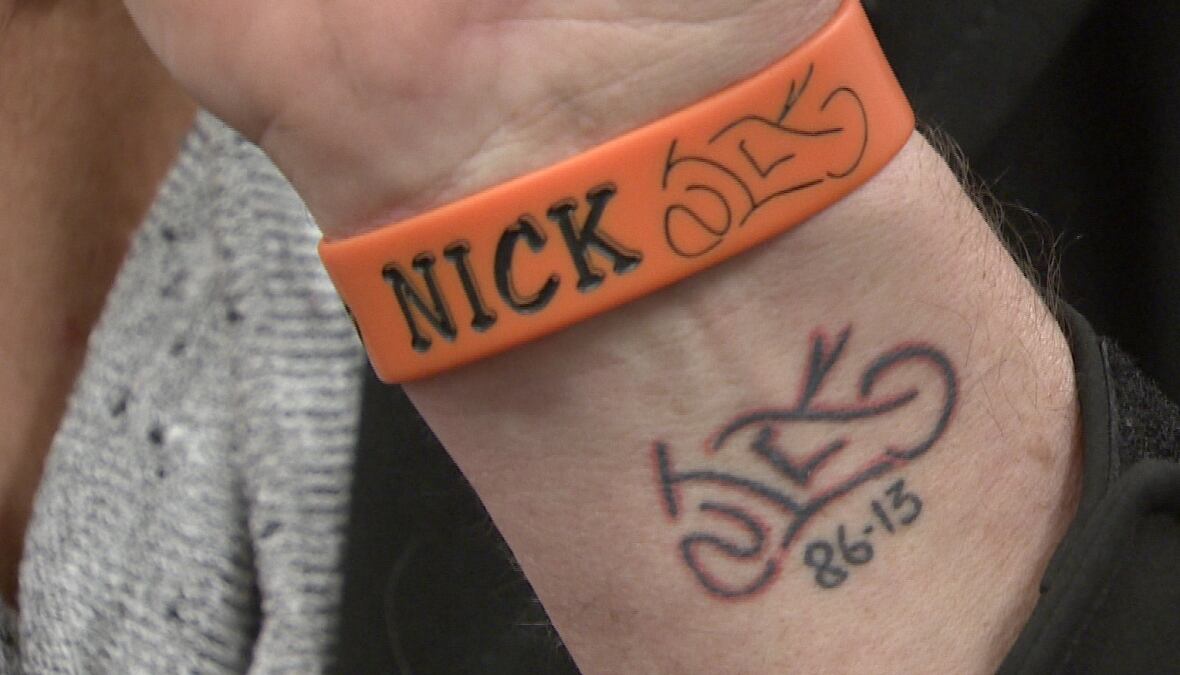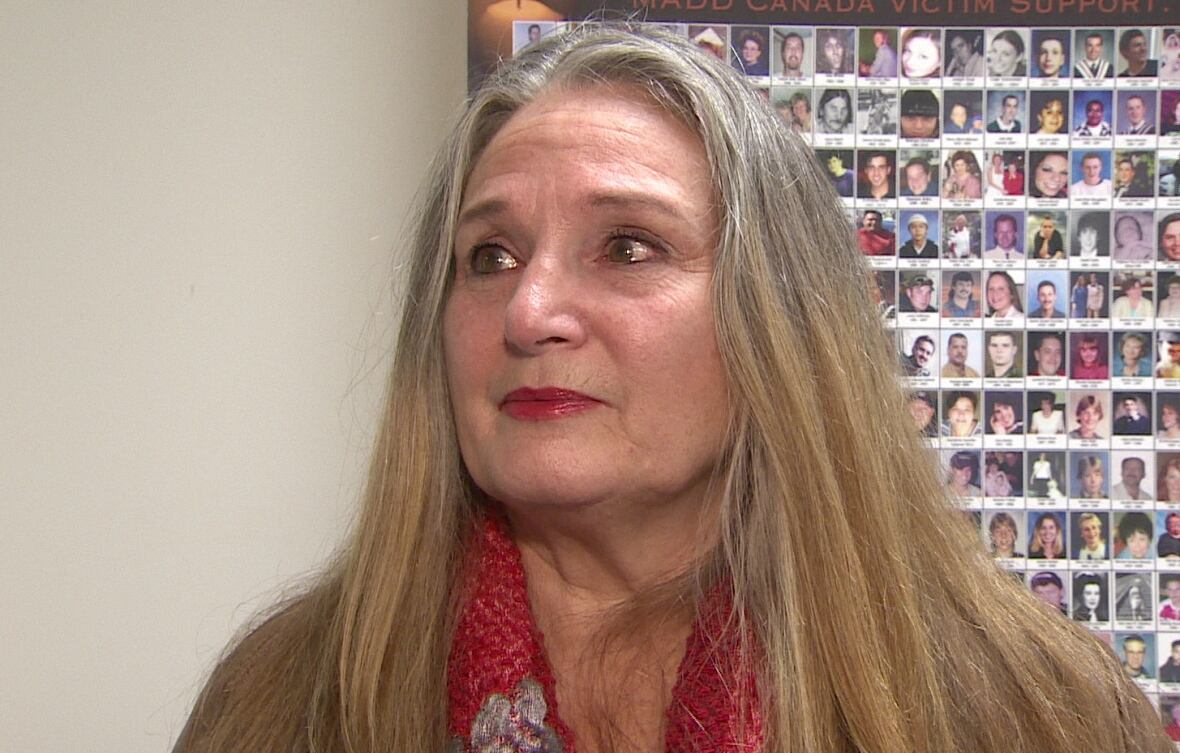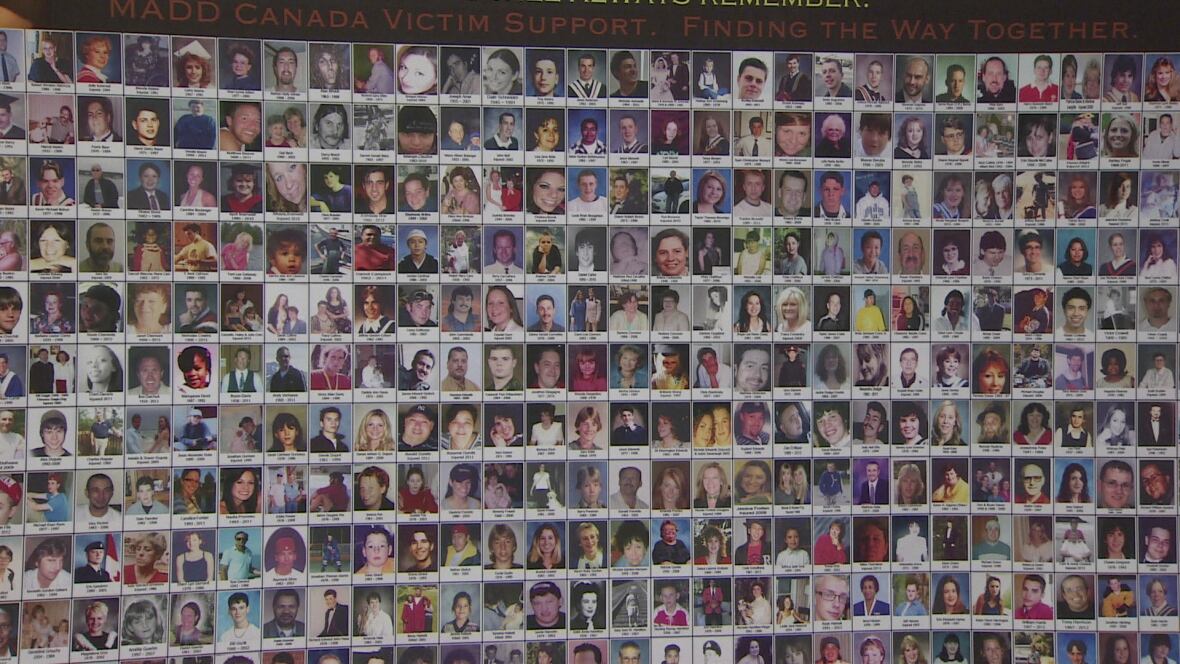Families of road death victims mark annual day of remembrance
'You don't get over it, you learn to live with it,' says woman who lost mother 23 years ago
Friends and family of people killed in road crashes gathered at the Royal Newfoundland Constabulary Headquarters in St. John's Wednesday to remember those they have lost.
They joined others across Canada in marking the National Day of Remembrance for Road Crash Victims, which is held annually on the third Wednesday in November.
Those who have suffered losses on the province's roads and highways were there to light candles, lend support and tell stories about those that were so tragically taken from them.
"When we're home it's difficult, because you're waiting for him to still come home," said Patricia Hynes-Coates, who lost her stepson Nick when he was killed in a collision with a drunk driver in August 2013.
"You hear a truck door close or you hear a motorcycle go up the road, and the first thing you do is jump, hoping it's him."

Hynes-Coates and her husband Terry wore bracelets and pins during Wednesday's ceremony, to keep Nick's memory alive.
They both said it was difficult for family to attend the ceremony, but felt it was important to be there.
"We hope that it stops somebody else from driving while impaired, and it prevents them from losing a loved one, because the hell that we live, we wouldn't wish on anyone," said Hynes-Coates.
"The sad thing is in our society, it's not until it hits close to home that people realize. No one is immune to this type of crash —it could happen to anyone tomorrow."
Keeping memories alive decades later
Christine Care was also at Wednesday's event, to honour her mother who was killed in a 1992 alcohol-related crash while walking on the road.
"You don't get over it, you learn to live with it," she said.
"When you have someone who is killed in such a horrific way, taken from you immediately, no goodbyes, you don't get over it — you learn to live with it."

Care said while it is difficult to attend memorials, talk about what happened is important because it could potentially get the message through to others and thus save a life.
"I feel obligated in my mom's memory to be here," said Care.
"You become very hyper-alert to what can happen. Before my mother was killed, I think I lived in a dream world — that it couldn't happen to me."

